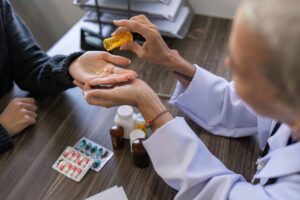Introduction
In the world of education, particularly within childcare setups, emergencies can emerge anytime. Understanding immediate reaction obligations is vital for educators, caregivers, and parents alike. Not just does it include standard emergency treatment knowledge, but it additionally includes a collection of protocols and abilities that should be mastered to make certain the safety and security of kids. From taking care of minor wounds to carrying out an EpiPen throughout an allergy, this detailed overview will delve into the myriad responsibilities that include immediate feedbacks in instructional environments.

Immediate Response Responsibilities: What to Do When Emergencies Arise
The term "instant feedback responsibilities" describes the activities and choices that require to be taken when an emergency situation takes place. These scenarios can range from small events like play ground problems to much more severe situations including medical emergency situations. The online cpr course focus right here gets on fast responses that can substantially impact the outcome for youngsters involved.
Understanding Emergency Circumstances in Education
Emergency scenarios can vary commonly in nature and extent. Some common instances include:

- Choking Incidents: Kids might unintentionally choke on food or tiny objects. Allergic Reactions: Instances requiring EpiPen administration because of extreme allergies. Minor Injuries: Scrapes, cuts, and swellings from play. Medical Emergencies: Bronchial asthma attacks or seizures that require prompt attention.
Recognizing Bronchial asthma Signs and symptoms in Children
Asthma is a common condition among children and recognizing how to identify its signs can conserve lives. Usual indicators consist of:
- Coughing frequently Shortness of breath Wheezing audios when exhaling Chest tightness
Choking Avoidance Methods for Educators
Preventing choking cases should be a top priority in educational setups. Below are some effective techniques:
Age-Appropriate Foods: Make certain that food supplied is suitable for youngsters's ages. Supervision Throughout Meals: Always monitor youngsters while they eat. Education on Food Choices: Educate kids regarding foods that pose choking hazards.EpiPen Management Protocols
When dealing with allergies, EpiPens can be life-saving tools. Right here's how to administer one:
Remove the EpiPen from its case. Hold the EpiPen strongly and eliminate the security cap. Press the tip against the external upper leg until it clicks. Hold it in place for about 10 secs prior to removing.Managing Minor Wounds Effectively
Injuries are unavoidable when dealing with energetic kids; thus, recognizing just how to handle minor wounds is important:
Clean the wound with soap and water. Apply an antiseptic solution. Cover with a sterile bandage.Child Defibrillation Guidance
For major situations where a child may experience cardiac arrest, knowing how to use an AED (Automated External Defibrillator) is essential:
Turn on the AED and adhere to voice prompts. Attach pads as indicated on the device. Ensure nobody is touching the child before supplying a shock if recommended by the AED.Building Educator Confidence Through Training
Educators play an essential duty in emergency reaction situations; hence it's critical they feel great in their capabilities:
cpr training onlineHLTAID012 Certification Australia Overview
The HLTAID012 certification furnishes educators with essential emergency treatment skills customized specifically for academic environments:
- Duration of training generally covers over a number of hours consisting of both written and practical components. It covers topics such as CPR strategies, managing injuries, and occurrence reporting protocols.
Written vs Practical Components of First Aid Training
Training programs like HLTAID012 consist of both theoretical understanding and hands-on technique:
|Component|Description|| --------------------|--------------------------------------------------|| Created|Recognizing protocols, legislations, and treatments|| Practical|Hands-on method making use of mannequins or simulation|
Renewal Timelines for Emergency treatment Certifications
Staying upgraded with emergency treatment certifications is necessary for educators:
- Most certifications call for revival every three years. Regular updates maintain educators knowledgeable regarding new practices or modifications in protocols.
Childcare Centre Emergency treatment Set Essentials
A well-stocked emergency treatment package is vital in any kind of child care centre setup:
Essential Products Include:
Band-aids of various sizes Antiseptic wipes Gauze pads Adhesive tape Disposable gloves ScissorsFirst Help Essentials for Parents
Parents need to also be furnished with vital first aid knowledge:
Know how to deal with high temperatures effectively. Recognize signs and symptoms of dehydration or heat exhaustion throughout hot weather. Create a home-based emergency treatment kit tailored for childhood years needs.Childcare Safety and security Dangers Assessment
Regular analyses assist determine potential dangers within childcare settings-- some common dangers include:
Slippery floors Sharp items within reach Playground equipment security checks cpr course near meRegularly examining these risks makes certain safety and security standards are constantly maintained.

FAQs Concerning Immediate Reaction Responsibilities
1) What need to I do if a youngster chokes?
- Administer back strikes complied with by stomach drives if they can not breathe or speak.
2) How commonly ought to I renew my HLTAID012 certification?
- Every 3 years according to Australian regulations.
3) What items are important for a childcare first aid kit?
- Band-aids, bactericides, gauze pads, scissors, disposable handwear covers must all be included.
4) How can I stop play ground mishaps?
- Conduct routine inspections of play area equipment and oversee youngsters during play actively.
5) What are asthma activity plans?
- An individualized plan created with healthcare providers describing actions to take throughout a bronchial asthma attack.
6) Just how do I acknowledge indicators of sensitive reactions?
- Look out for hives, swelling around the face or mouth, trouble breathing or wheezing sounds; act quickly!
Conclusion
Immediate feedback duties are not merely tasks; they personify a dedication to protecting children's health and wellness and health within instructional atmospheres. By comprehending methods related to choking avoidance, EpiPen administration, minor injury monitoring, and extra-- instructors can efficiently react when emergencies develop while confidently building trust amongst moms and dads and stakeholders alike.
By staying notified via accreditations like HLTAID012 offer emergency treatment in education programs and maintaining first aid kits equipped-- every person figures in in producing safe and secure discovering settings for development and exploration while guaranteeing every youngster's safety and security continues to be paramount!